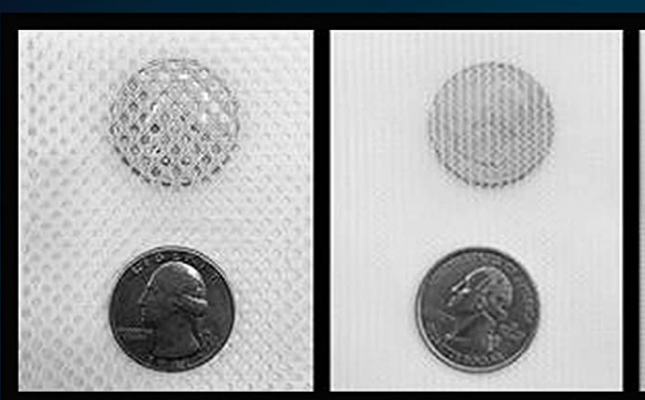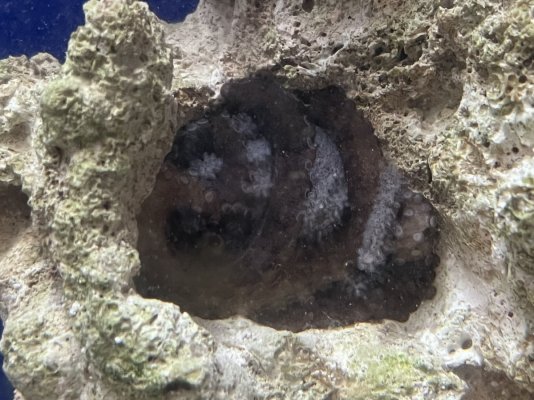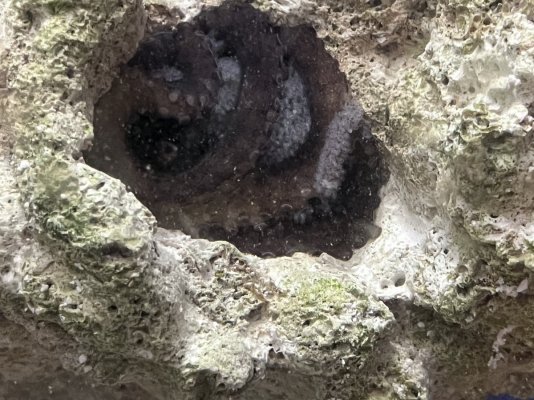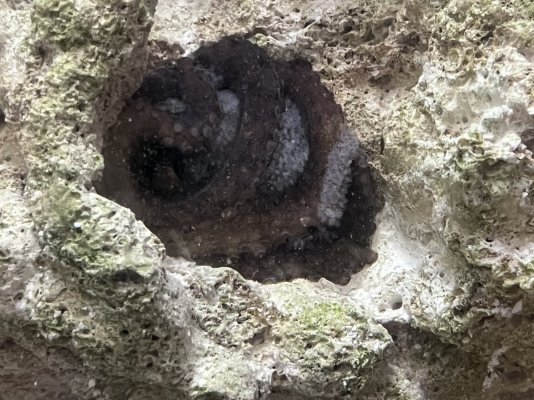- Joined
- Apr 11, 2020
- Messages
- 58
- Reaction score
- 9
Hey Guys,
About a month ago my wife and I got a Brown Pacific Octopus. We had done our research and had a tank setup waiting until we found one.
We have had it for about a month now. The first two weeks were great, she has lots of "toys" and we would "play" by moving her toys around only to wake up to her having moved them back to where she wanted them. After two weeks that had stopped, she stopped coming out. During our routing cleaning yesterday we found that she had laid eggs, which is why she stopped coming out, and she is caring for her eggs.
We have mixed emotions, sad because we know what this means for her, but excited, although extremely nervous, because we have the chance to care for all her young. I have taken care of many fry before, but NEVER octopus larvae.
I am looking for advice on what to expect, what food i should have ready and how often do they eat, how fine of netting do i need to cover the overflow with, how long can they live together before I need to separate them from each other, and is it okay to leave mom with the babies until she passes? and really any other advice you have to offer, I am ready to listen and learn.
She is in one of 3 tanks that I keep. It is a 50 gallon all in one and well secured (for her, not secure enough for Larvae). I keep her alone with only peppermint shrimp, hermit crabs and snails, all was meant for her food. No fish.
I also have a 250 Gallon and another 50 gallon that I use as a QT/monitoring tank. It only has a few damsel's and NO medication of any kind. So I have options for the shrimp, hermits and snails if I need to move them.
Any suggestions or ideas would be greatly appreciated
About a month ago my wife and I got a Brown Pacific Octopus. We had done our research and had a tank setup waiting until we found one.
We have had it for about a month now. The first two weeks were great, she has lots of "toys" and we would "play" by moving her toys around only to wake up to her having moved them back to where she wanted them. After two weeks that had stopped, she stopped coming out. During our routing cleaning yesterday we found that she had laid eggs, which is why she stopped coming out, and she is caring for her eggs.
We have mixed emotions, sad because we know what this means for her, but excited, although extremely nervous, because we have the chance to care for all her young. I have taken care of many fry before, but NEVER octopus larvae.
I am looking for advice on what to expect, what food i should have ready and how often do they eat, how fine of netting do i need to cover the overflow with, how long can they live together before I need to separate them from each other, and is it okay to leave mom with the babies until she passes? and really any other advice you have to offer, I am ready to listen and learn.
She is in one of 3 tanks that I keep. It is a 50 gallon all in one and well secured (for her, not secure enough for Larvae). I keep her alone with only peppermint shrimp, hermit crabs and snails, all was meant for her food. No fish.
I also have a 250 Gallon and another 50 gallon that I use as a QT/monitoring tank. It only has a few damsel's and NO medication of any kind. So I have options for the shrimp, hermits and snails if I need to move them.
Any suggestions or ideas would be greatly appreciated























